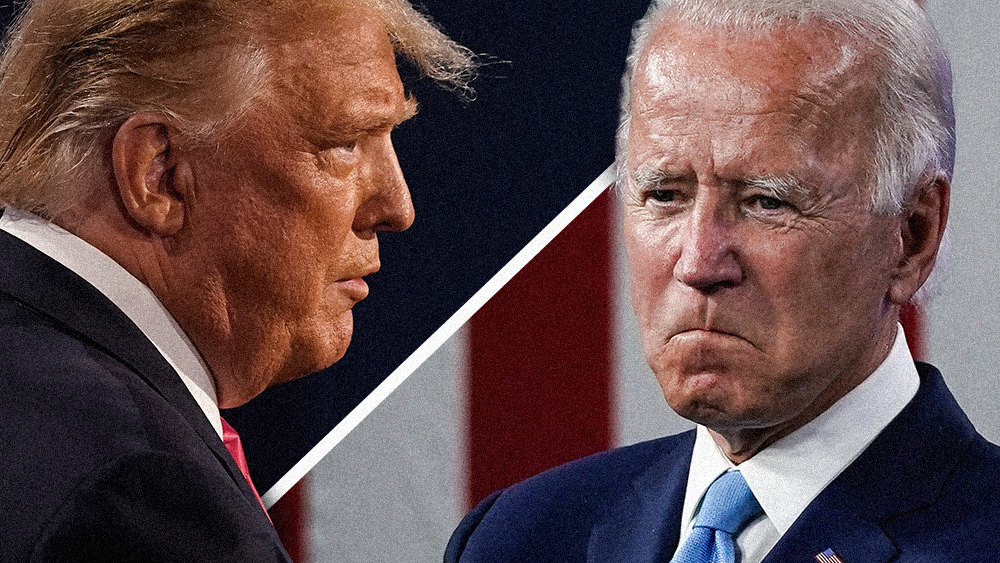Federal appeals court overwhelmingly overturns Trump-era ban on rifle bump stocks
01/12/2023 / By JD Heyes

It’s not often that a federal gun statute is rejected so soundly, but a rule put into place by the Trump administration has just been soundly rejected.
During the previous administration and after a madman used rifles equipped with bump stocks to massacre nearly 60 people attending an outdoor concert in Las Vegas on Oct. 1, 2017, then-President Donald Trump, responding to a tidal wave of public pressure, acquiesced to the gun control left and ordered his Justice Department to pronounce the stocks verboten. Suddenly, millions of Americans who owned the pieces of equipment, which are used to create the appearance and function of a fully automatic weapon, were in violation of the ‘law.’
But as is most often the case, one of those owners who did nothing wrong on Oct. 1, 2017, filed a lawsuit alleging that the previous administration mischaracterized the bump stock and thus, under the guise of current federal law, had no authority to issue the ban.
And now, a federal appeals court has agreed — overwhelmingly.
As reported by Breitbart News this week:
The U.S. Court of Appeals for the Fifth Circuit handed down a 13-3 decision Friday striking down the regulatory gun control that banned bump stocks under former President Donald Trump.
In its ruling, the “court intimated that actions on guns should be taken by Congress rather than the executive branch,” the outlet added.
Circuit Judge Jennifer Walker Elrod, in writing for the majority opinion for the Fifth Circuit, offered that those who devised the ban on bump stocks did not provide “fair warning that possession of a non-mechanical bump stock is a crime.”
?BREAKING NEWS: Fifth Circuit strikes bump stock ban, says Congress, not ATF, decides what conduct is criminal.
— NRA (@NRA) January 6, 2023
In 2018, when the DOJ published a summary of the ban, the department noted:
The Department of Justice is amending the regulations of the Bureau of Alcohol, Tobacco, Firearms, and Explosives (ATF) to clarify that bump-stock-type devices-meaning “bump fire” stocks, slide-fire devices, and devices with certain similar characteristics-are “machineguns” as defined by the National Firearms Act of 1934 and the Gun Control Act of 1968 because such devices allow a shooter of a semiautomatic firearm to initiate a continuous firing cycle with a single pull of the trigger.
ATF added that “The term ‘machine gun’ includes bump-stock devices, i.e., devices that allow a semi-automatic firearm to shoot more than one shot with a single pull of the trigger by harnessing the recoil energy of the semi-automatic firearm to which it is affixed so that the trigger resets and continues firing without additional physical manipulation of the trigger by the shooter,” said the Justice Department statement at the time.
The agency justified the definition by noting that weapons equipped with “such devices allow a shooter to initiate a continuous firing cycle with a single pull of the trigger.”
Plaintiff Michael Cargill filed suit after he was forced to give up several of the bump stocks under the new ATF and DOJ definition, arguing that firearms equipped with the stocks still normally operate with several pulls of the trigger, not one. He also argued that federal law defines a machine gun as operating with a “single function of the trigger.”
“A plain reading of the statutory language, paired with close consideration of the mechanics of a semi-automatic firearm, reveals that a bump stock is excluded from the technical definition of ‘machinegun’ set forth in the Gun Control Act and National Firearms Act,” Elrod added.
Sources include:
Submit a correction >>
Tagged Under:
appeals court, ban, big government, bump stock ban, bump stocks, federal court, gun control, gun rights, guns, left cult, overturn, Second Amendment, Trump administration, unconstitutional
This article may contain statements that reflect the opinion of the author
RECENT NEWS & ARTICLES
COPYRIGHT © 2017 POLICE STATE NEWS



















